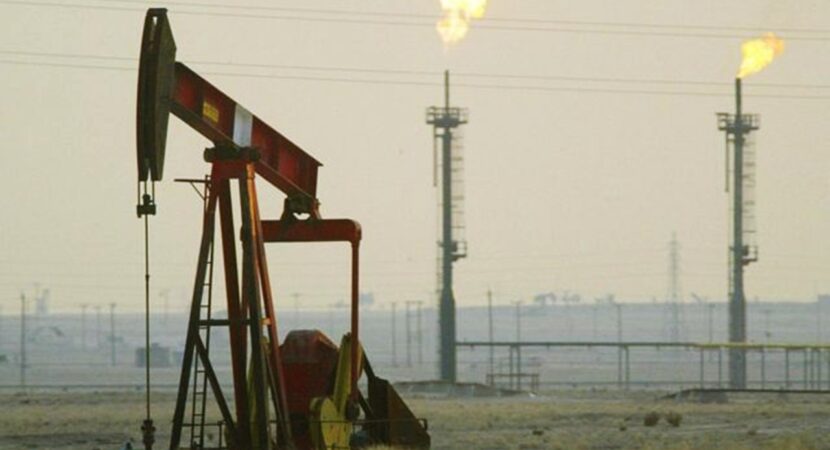
The Afghan nation has a strong influence on Eastern and Asian economic policy, with the resumption of power, its neighbor Iran, a major world oil producer, can interfere in prices without having American pressure on its border
The return of the Taliban extremist group to power in Afghanistan causes changes in the world socioeconomic scenario and should generate uncertainties in the oil tanker market. A new period of instability and reheating of prices may appear on the horizon, with the possibility of the emergence of new conflicts in the region and the influence of Iran and China in the new regime. All these elements should put even more pressure on the cost of oil derivatives in Brazil. But, after all, why does the Afghan crisis have such an impact on the oil market?
Read also
- Gerdau, the largest Brazilian steel producer, invites candidates without experience who want to enter the industry for 221 job vacancies in steel mills
- Petrobras, the Brazilian oil giant, opened on Monday (20/09) a public notice in the state of ES for enrollment in the social digital inclusion program
- Possible default by Chinese multinational giant Evergrande could impact agro in Brazil
- Magalu, one of the best companies to work for in Brazil, invites black candidates with no experience for a salary of R$6,8; there is no age limit to apply for jobs in the Trainee Program 2022
- Direct sale of ethanol from plants is defended by parliamentarians who promise to stimulate competition and curb the increase in gasoline prices at gas stations
As Afghanistan is not a major world producer of the raw material, what counts in this interference, according to specialists, is the country's location. Being positioned between the Middle East and the Far East, the Afghan nation has a strong influence on Eastern and Asian economic policy. Another factor is neighboring Iran, which is indeed a major world producer of oil that can now interfere with prices without American pressure on its borders.
With the withdrawal of the US in the region, China is targeting rich Afghan mineral reserves
Another important piece on the geopolitical chessboard is China, which has already signaled a dialogue with the new government, which generates a new combustion point in the already hectic economic confrontation with the United States, in the struggle to take the podium as a new world power.
The American president, Joe Biden, lost political support with the unsuccessful withdrawal of troops from Afghanistan, something that, according to analysts, impacts on the approval of the American infrastructure package of US$ 3 trillion, whose purpose is to revive the country's economic activity , after the long period of the pandemic.
In addition to measuring forces with the United States in the region, China is interested in investments for the reconstruction of Afghanistan and in the rich Afghan mineral reserves, whose value is up to US$ 1 trillion and have never been properly exploited. There is a lot of copper, lithium and bauxite there, important resources for the production of electric cars, especially in the development of their batteries, in addition to natural gas, for the generation of alternative energies, oil, gold, uranium, coal and a series of other minerals. valuable.
In 2019, the Afghan Ministry of Mines and Petroleum calculated around 30 million tons of copper in the country and around 2,2 billion tons of iron ore, which results in a value of over US$ 350 billion.
The Taliban takeover and the day after in the oil market
The news of the Taliban's resumption of power, after 20 years, resulted in an immediate impact on the oil market in the international market. On the morning of Monday, August 16, the day after the return of the extremists, the price of oil fell by 4% in the face of international apprehension over the return of conflicts in the region with the departure of American troops.
Around midday, October contracts for Brent crude (global benchmark) fell 2,11% to $69,10 a barrel on ICE London, while September WTI contracts (US benchmark) fell. , lost 2,33%, being sold at US$ 66,62 a barrel, on the New York Commodity Exchange (Nymex). Two days later, and the Brent and WTI continued to fall by more than 2%. In Brazil, Petrobras' preferred shares accumulated losses of 2,47% in the first two trading sessions of the week. The records of falling oil prices lasted for another seven days until, on August 23, Brent advanced 5,5% and WTI, 5,6%.
The day following the return of the extremist group was also marked by a generalized drop in stock markets in much of the world, especially in Europe and also in Brazil. The Ibovespa closed August 16th with a drop of 1,66%, remaining below 120 thousand points after three months.
The Afghan currency, called the Afghan, suffered a sharp depreciation, losing about 80 dollars of value in the week before the resumption. A decline that puts pressure on inflation and leaves the already fragile Afghan economy dependent on international aid. Even so, the expected non-recognition of the Taliban government as official by most of the international community should make it difficult for the local Central Bank to seek dollars and contributions from the IMF.
How might the Afghan crisis affect Brazil?
With a weakened economy, Afghanistan has no influence on other world economies and this means that the crisis in the eastern country is not a decisive factor in the economic scenario of the entire planet.
However, the presence of Iran and China as new geopolitical influencers and the return of socioeconomic instability in the region, with the possibility of new conflicts, are factors that tend to count negatively on the board of the world economy.
In the event of an upturn in oil prices, Brazil may find it even more difficult to contain the rise in gasoline and cooking gas prices, give new impetus to higher inflation, and bring new difficulties to the resumption of economic growth in the country. country.
by Rodrigo Simões Scolaro, economist at Costdrivers












